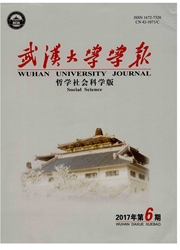

 中文摘要:
中文摘要:
根据询价制改革路径,建立动态博弈模型研究新股定价过程中询价机构的报价行为,通过分析博弈模型可能趋向的演化稳定状态,得出询价机构的报价稳定策略。在博弈模型结果基础上,引入询价制改革影响,实证研究四次改革的具体措施对机构报价稳定策略及新股抑价率的影响。结果表明,询价制改革起到了提高报价机构竞争程度的作用,因此能够使询价更充分,并降低新股抑价率。在询价制历次改革进程中,新股定价市场化程度与定价效率得到了提高。该研究结果为新股发行制度的向注册制改革提供了理论参考。
 英文摘要:
英文摘要:
Based on the factual experience and reform path of IPO and its pricing in China' s stock market, we build a dynamic game model to study the individual quotation behavior of inquiry institutions and their overall quotation strategy in the process of China's IPO pricing. The issue of new shares is a multi-participant dynamic game process involving the issuers of the new stock, the issuing underwriters, the new stock inquiry institutions and the market investors, each of whom will make decisions out of the interest of their own and influence the final issue price as well. Considering the influence on IPO price and pricing efficiency in the process of reforming and implementing China~s IPO inquiry system, it is of great significance to explore the reform of the IPO inquiry system and its impact on China ~ s IPO price and pricing efficiency. Since the quotation of inquiry agencies involves multiple participants that will interact with each other, we establish a dynamic game model among inquiry institutions, using the evolutionary stable strategy and the replicated dynamic equation to study the quotation behavior of the inquiry agencies in the process of the IPO quotation. One of the characteristics of our model is that participants' complete rationality is not required; instead, we emphasize their mutual learning and adaptation, which better reflects the actual properties of the inquiry institutions' quotation behavior in China' s stock market. Meanwhile, based on the analytical result of our dynamic game model, we sort out the course of the reformation of the inquiry system for issuing new shares in China's stock market systematically, and study studying the influence the variousreform, during which differentiated measures are taken, shed on the quotation of inquiry institutions and the efficiency of IPO pricing separately. The theoretical analysis indicates that the first reform of China's IPO inquiry system, which abolished the restriction on the price-to-earnings ratio of new shares, increased the co
 同期刊论文项目
同期刊论文项目
 同项目期刊论文
同项目期刊论文
 期刊信息
期刊信息
